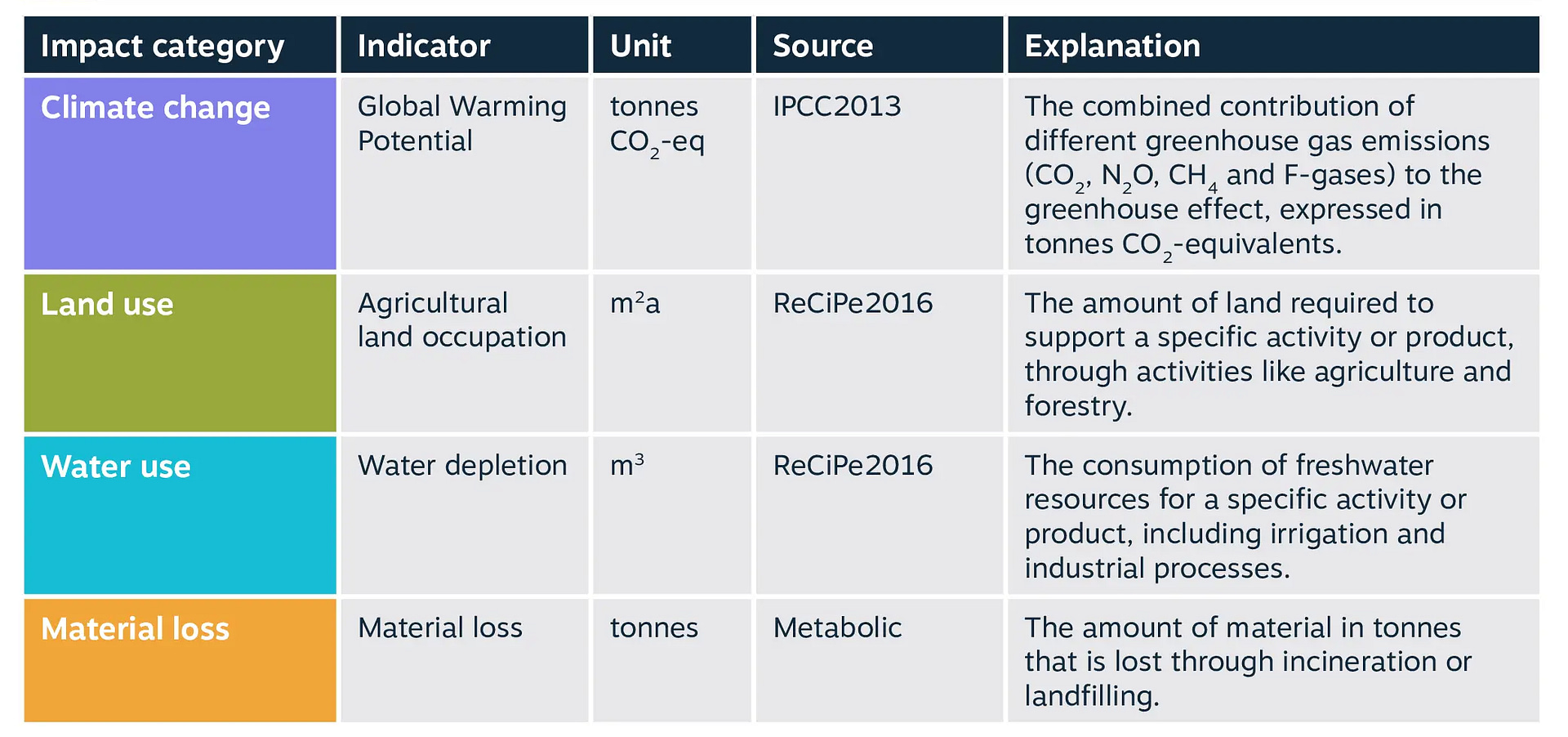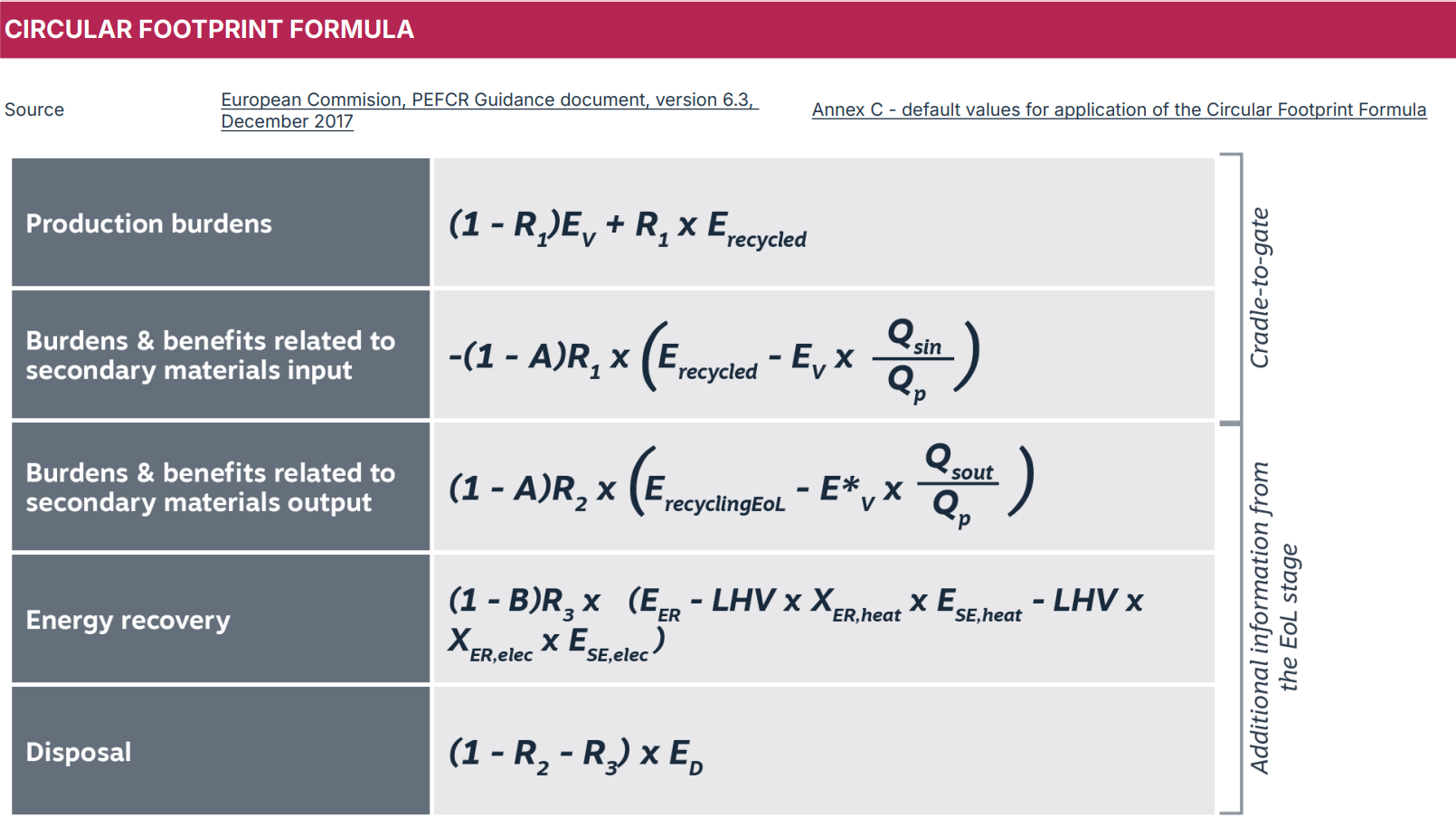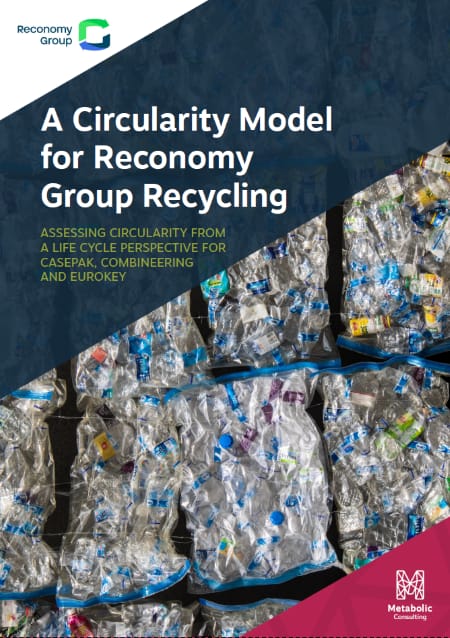Recycling: measuring potential reductions in environmental impact
Using Metabolic's Circular Intervention Impact Calculator (CIIC) to assess and optimize recycling waste streams for multiple Reconomy brands.
Reconomy, a leading company in the circular economy sector, worked with Metabolic to understand how recycling key waste streams can lead to reductions in environmental impact. Using our quantitative methodology “Circular Intervention Impact Calculator”, we identified potential reductions in environmental impacts across carbon, water, agricultural land footprints, and material losses within three of Reconomy’s ‘Recycle Loop’ brands: Eurokey, Combineering, and CasePak.
CIIC is a practical methodology for understanding how resource recovery can increase value retention in the global economy while minimizing environmental impacts. It helps stakeholders reliably estimate the potential for reducing environmental impacts, both for current operations and future-oriented circular scenarios, measured against industry (business-as-usual) benchmarks.
This innovative methodology is useful even for organizations whose core business models focus on circularity and sustainability, like Reconomy, serving as a data-driven compass to ensure the progress of their circular journey.
Our CIIC methodology is a full life cycle assessment (LCA) approach that applies the Circular Footprint Formula (CFF); a specialized and pioneering approach developed by the European Commission’s Joint Research Center (JRC). Learn more about CIIC here!
- Partner: EMK Capital – Private equity owner of Reconomy
- Client: Reconomy – International leader in circular economy services which operates across the resource cycle, offering services including waste and resource management, environmental compliance, and omnichannel returns.
- Date: December 2023
The complexities of measuring environmental impact in circular strategy implementation
Establishing resilient and sustainable waste management operations is an essential step toward a circular economy. In recent years, awareness of this issue has grown. This has led to increased expectations for companies to implement circular waste management strategies and measure their carbon footprint. However complex, measuring the environmental benefits of these practices helps decision-makers understand why investing more in these initiatives is so important. Even companies at the forefront of implementing circular economy solutions have opportunities to further reduce their impact across operations.
Assess holistically the environmental impacts and benefits of recycling
By assessing the recycling data of Reconomy brands Eurokey, Combineering, and CasePak, we calculated their impact across diverse categories, including carbon-related emissions, water consumption, land use, and material utilization. Then, by comparing the three Reconomy brands’ scenarios with a business-as-usual industry-average scenario, Metabolic was able to measure the potential environmental contribution of their recycling activities. By including multiple impact categories, we can empower businesses to make even more informed decisions and prioritize actions that address not only climate change but also other environmental criteria.
To measure the life cycle impacts of these waste streams, we used a combination of LCA databases and site-specific data linked to energy and water requirements for recycling activities. Using site-specific data was key to building a robust model to measure the actual impact of recycling operations.
A circularity scorecard reflecting the impact savings of recycling activities
Using our CIIC methodology, we evaluated emissions savings for Eurokey, Combineering, and CasePak by comparing LCA-based environmental impacts and benefits of its recycling system with the industry average.
For specific waste streams, recycling activities showcased a notable 32% reduction in cradle-to-grave GHG emissions compared to the industry average performance. When extrapolated to the mass of waste treated, this translated to roughly 800 kilotonnes of CO2-equivalent emissions (equivalent to the energy use of 104,000 households in one year).
While the assessment focused on recycling, our CIIC methodology can be expanded further to assess the impact reduction potential of higher R-strategies such as refurbishment and reuse.
- Curious to learn more about circular value chains? Check this interactive page.
- Check out our Circular Interventions Impact Calculator!
"Reconomy wanted to further understand how circular our service is within three of our Recycle Loop brands - namely Eurokey, Combineering, and Casepak - when compared to the industry average. Metabolic’s systematic approach has enabled us to use this model to demonstrate and ensure that we are continuously moving towards a more circular economy and enabling our customers to meet their own sustainability objectives."
- Diane Crowe, Group Sustainability Director, Reconomy












